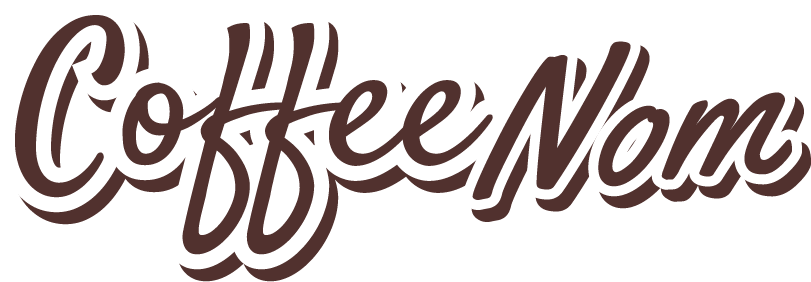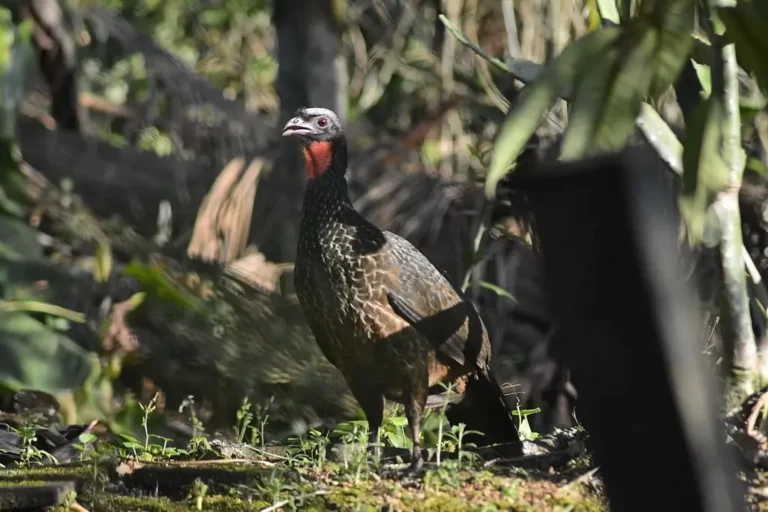In today’s episode of “animal poop coffee,” we have bird poop coffee beans! Yes, there’s coffee that is collected from a bird’s poop.

Like the other poop coffees, bird poop coffee, or “Jacu coffee,” is considered a specialty coffee. So today, let’s look at the origin and details of this crazy coffee.
Origin Of The Bird Poop Coffee
This exquisite coffee comes from one of the smallest coffee plantations in Brazil, the Camocim Estate in Pedro Azul, Espirito Santo. The coffee farm also doubles as a sanctuary for the South American Jacu birds.
Henrique Sloper de Araujo discovered coffee. We say “discovered” because he found Jacu birds munching on coffee beans, and his thought was, “the beans are going somewhere, and I need it.”

Henrique was an organic coffee farmer, and he wasn’t going to waste the chance of getting coffee beans out of Jacu bird poop. However, since Kopi Luwak was already a thing at this point, and Henrique was aware of it, he wanted to try the same thing with the Jacu birds present in his Estate.
Henrique got his first batch of Jacu coffee back in 2006, and it’s been on a steady rise in popularity ever since. Nowadays, it’s one of the most expensive coffees.
Introducing: The Jaku Bird
Jacu birds are an endangered species found in the Atlantic rainforest in Brazil, and of course, in the Jacu bird sanctuary near the Camocim Estate.
The sanctuary was established after the birds became endangered from a deforestation initiative between 2000-and 2006. Brazil deforested a land big enough to rival the landmass of Greece.

The bird looks like a crossbreed of pheasant and turkey. They may look simple, but the coffee they produce is more than that.
Production
The production process for bird poop coffee is similar to Kopi Luwak coffee beans. The harvesting season takes place from April to October since Jacu birds visit the Estate more than usual.
The coffee in the Estate is grown at an elevation level of 450 meters. Jacu birds have a real taste for good coffee, and they only choose the ripest coffee cherries for eating. Jaku birds mainly feed on organically farmed Arabica coffee varieties. including:
The birds then pass the beans through their digestive tract and poop out the product.
After a certain time, the coffee farm workers spread out to collect the beans in the poop.
In the Camocim Estate, hunting for Jacu poop coffee has been turned into a treasure hunt, where Henrique offers a reward of 100 Reais (21 USD) for anyone who can find bird poop that has coffee in it.
After the odorless droppings are collected, each bean is hand-picked by professionals and washed right away. Once the beans are cleansed, the protective husk over the bean softens, which is removed.
After de-husking the beans, they are roasted and packaged for shipping worldwide.
Having fun Nomies? Check out our piece on monkey poop coffee beans.
Flavor Profile Of The Bird Poop Coffee Beans
Jacu coffee has a distinctive flavor, and it comes from the unique diet properties of the Jaku birds themselves. Since the diet of the Jaku birds is mostly vegetarian, most batches of coffee beans have a flavor note of apricot seeds, truffles, and wild berries.
Jacu coffee has a nutty flavor, with notes of aniseed, brown bread, and even milk chocolate. The coffee is more acidic than the other coffee found in the region and has a clean, smooth aftertaste of black pepper and peanut.
It’s also worth mentioning that Jacu coffee has no bitterness. So you can brew it with any kind of brewing method you like, and the result will always be the same.

Pricing
Coffee from the Camocim Estate has always been held in high regard due to the production quality. Even non-Jacu bird coffee from Camocim, the “Camocim Organics,” are sold for $450 per 60 pounds.
But when it comes to Jacu coffee? The price is $3250 per 60 kg (132 pounds), making it almost $24 per pound.
The high pricing comes from the long-winded production process, mainly caused by the picky nature of the Jacu birds.
Fun fact: Jacu birds have their own unique way of selecting the best coffee cherries they will eat, which was discovered by accident by Henrique.
Had fun reading? You’ll love to read our piece on bat poop coffee beans.
Bottom Line
The idea of coffee being made out of poop can sound highly unappealing, but the flavor profile and the production quality make up for it nicely.
The coffee can be tough to get your hands on, but taking one sip of this fine, sweet coffee can take all that frustration away.
FAQs
Bird poop coffee is called “Jacu coffee,” and the name comes from the birds that help with the production of the coffee, called the “Jacu” birds.
Yes, but Jacu birds are very picky eaters, and they have their own unique process of choosing the coffee beans for eating and digesting.
The rarity of the coffee and the unique flavor profile of the coffee is what makes it special.
The production process of the coffee is time-consuming and really tough, reducing the production down to only a couple hundred pounds each year.
Jacu coffee is most similar to Kopi Luwak coffee in terms of the production process, but the flavor profile is more detailed.

